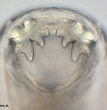Heartworm Disease
What is Heartworm Disease?
Heartworm disease is a potentially fatal condition caused by Dirofilaria immitis, a parasitic roundworm that is transmitted by multiple species of mosquitoes, including those found in Wisconsin. Infected animals may develop a cough, exercise intolerance, weight loss, have difficulty breathing, have bouts of fainting, and may even die as the adult worms clog the lung?s arteries. Signs of heartworm disease will vary greatly depending on the number of adult worms living in the pulmonary arteries. Serious damage can occur when the adult worms die (they may live for 5-7 years in dogs) as the dying worms can create blockages in the heart and lungs, and may even release toxins that cause the host to go into anaphylactic shock.
Dogs and other wild canines are considered to be the primary host, but the disease is also known to occur in cats, ferrets, and even humans (very rarely). Dogs, cats, and ferrets of any age may become infected.
Where is Heartworm Disease?
The disease is found throughout the world. It is considered to be endemic in the continental United States, and is most prevalent in the Mississippi river valley states as well as the Gulf and Atlantic Coasts. While Heartworm disease is relatively rare in Wisconsin and Minnesota, when it does occur it can be fatal, or at the very least very expensive to treat. It is for that reason we still recommend using heartworm preventatives.
How does my pet contract Heartworm disease?
Infected mammals have microfilariae, or baby heartworms, circulating in their blood stream. When a mosquito takes a blood meal from an infected mammal the circulating microfilariae enter the mosquito. Over the next two weeks the baby heartworms develop within the mosquito to their infective larval stage. Next, the mosquito bites another susceptible animal, and the infective larvae are transmitted to the new host. Over the next 6 months the infective larvae mature into adult worms which migrate to the pulmonary arteries. The adult worms then produce microfilariae which will circulate in the bloodstream to be picked up by other mosquitoes.
Can Heartworm Disease be prevented?
YES! Heartworm disease is very preventable. At the Animal Hospital of Chetek and Animal Hospital North we recommend year round heartworm prevention for dogs, cats, and ferrets. We strongly recommend Heartgard for dogs, and Revolution for cats and ferrets. When these medications are administered properly on a timely schedule, heartworm infection can be completely prevented.
We recommend HeartGard Plus for dogs because it is a cost-effective easy to give oral treat for dogs that not only protects your dog against heartworms, but also hookworms, and roundworms. Iverhart Max is also effective and provides additional support against tapeworms; however, Iverhart Max is much less palatable to dogs, and you may find this medication difficult to administer.
We recommend Revolution for cats because it is an easy to give topical treatment that not only provides protection against heartworm disease, but it also prevent fleas, roundworms, hookworms, and tapeworms. It has some efficacy against ticks, but not as much as Frontline Gold or other tick specific products. There is simply no other product on the market that provides as much protection to your cat as revolution. Though there is no official product for ferrets, we strongly recommend using Revolution for these pets; however, this is considered off-label use and risks must be discussed with your veterinarian prior to using this medication.
There are no mosquitoes in the winter, so why do I need to purchase year round prevention?
You are correct to note there are few if any active mosquitoes in the winter; however in this part of the country there is a far more prevalent reason to us heartworm preventatives.
Preventatives provide protection against intestinal parasites like tapeworms, hookworms and roundworms that can infect both your pet and your family. These parasites can cause anemia, vomiting, severe weight loss, and diarrhea in your pets. They are also known to cause skin lesions and even blindness in humans.
|
Roundworm

|
|
Hookworm

|
Why does my pet need to be tested every year before I put them on preventatives?
While heartworm prevention is generally safe and easy, complications may arise if preventative medications are given to animals with circulating microfilariae. Heartworm preventative, though not labeled as such, may destroy microfilariae as well as larvae. If a large number of circulating microfilariae are destroyed they may cause a serious anaphylactic reaction which could kill your pet. Because no preventative is 100% effective in 100% of pets we screen for heartworm every year to make sure heartworm prevention is not going to harm your pet.
The Animal Hospital of Chetek and Animal Hospital North use a Heartworm Antigen screening test prior to prescribing any dog over six months old heartworm prevention. While this test does not screen for the presence of circulating microfilariae it does screen for the presence of adult heartworms. If adult heartworms are present, we can assume that there are circulating microfilariae. For some dogs will recommend a 4dx test, which not only tests for adult Heartworms, but this test will also screen for exposure to Lyme disease, anaplasmosis, and ehrilichiosis.
If your pet tests negative for heartworm disease and is showing no clinical signs of the disease we will happily prescribe your pet heartworm prevention. If your pet tests positive for heartworm our veterinarians will discuss with you further diagnostics and treatments. You may decline the test and still purchase the prescription medication as long as you understand the risks you are taking.
Is Heartworm Disease Treatable?
Heartworm disease is treatable in dogs, though treatment is very expensive and dangerous depending on how many adult worms are present. Unfortunately there is no treatment for heartworm disease in cats, though they do not contract heartworm disease as frequently as dogs.
For more information:
You may visit the American Heartworm Society's website at: http://www.heartwormsociety.org/
***Information provided on this website is not to be used in place of a veterinary visit. The needs of individual animals will vary, please consult a veterinarian in person for guidance in regards to your pet's health.
|
